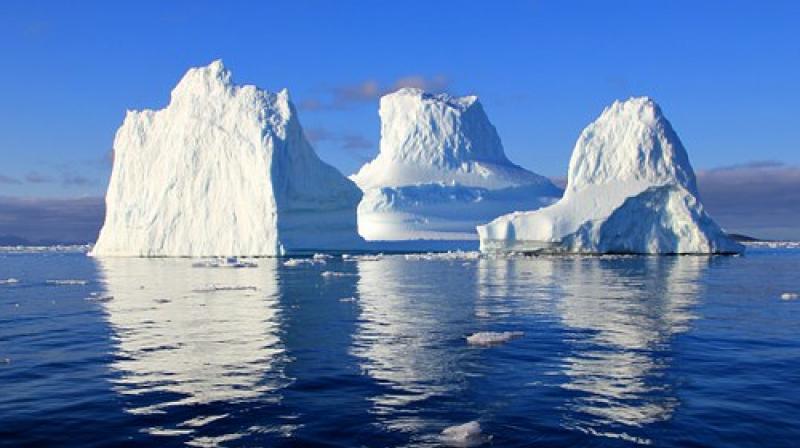Melting ice making Greenland sea less saline, affecting marine life
Scientists from Aarhus University in Denmark have unveiled the long-term impact of the melting of the Greenland ice sheet.

Melting ice is causing coastal waters in Greenland to become less saline, which may in turn affect marine life as well as the global ocean currents that keep Europe warm, a study warns.
For the first time, scientists from Aarhus University in Denmark have unveiled the long-term impact of the melting of the Greenland ice sheet.
Impact on fjords
The observed increase in freshwater content will affect the conditions in all Greenland fjords, researchers pointed out.
Over the years, the dramatic meltdown of ice in the Arctic Ocean has received great attention and is easy to observe through satellite images.
Also, glaciers have been observed to melt and retreat and the researchers know that today’s meltdown of the Greenland ice sheet has more than doubled compared with the period 1983-2003.
How the increased influx of fresh water will affect the marine environment is, however, largely unknown.
Clear tale
Now, unique annual measurements made within the framework of the ‘Greenland Ecosystem Monitoring Program’ since 2003 in northeast Greenland tell a clear tale — fresh water from the ice sheet accumulates in the surface layers of the surrounding sea and flows into the Greenland fjords.
Measurements show that the surface water layers became up to 1.5 per mill less saline. This equivalent to an increase in freshwater content from about one metre in 2003 to almost four metres in 2015.

